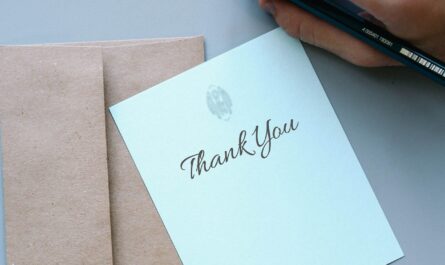Personal productivity became a thing with the emergence of the “knowledge worker” concept. Until then, productivity was primarily focused on industrial efficiency. As the progress of technology and the internet went rampant, knowledge workers had to find innovative ways to keep up with information in the finite time of a day. What was the solution? Productivity hacks, of course.
The illusion of productivity
According to a report by Grand View Research, the global productivity market size was valued at USD 65.2 billion in 2020. As a comparison, this is more than the renewable energy market and the logistics market, which the same report valued at $62b and $61b, respectively.
Examples of productivity hacks include the Pomodoro Technique, the Eisenhower Matrix, the Two-Minute Rule, Inbox Zero, Do Not Disturb Mode, time blocking, and outsourcing and delegating tasks. These are all free and useful tools, so what is really worth $60 billion? It is all the apps, products, services, software, books, and courses that are repackaging the same information.
Take the Pomodoro Technique as an example. It is really simple: you work uninterrupted for a 25 minutes stretch (one pomodoro), and then you take a short break. After four pomodoros, you take a longer break. So, all you need is a timer. Yet, on Google Play at this moment, there are 30 apps doing exactly the same thing.
The hidden costs of productivity hacks
Personal experience shows that trying to find the perfect app or the perfect hack can become addictive. It is almost impossible to stop out of fear of missing out on a bigger opportunity to be more productive. I found this out when I joined a fast-paced corporate environment. Out of a false belief I could do everything, I started over-organizing and collecting way too many productivity tools. When time seemed to be running out before I had done everything I wanted, I felt guilty. It was because of what I was telling myself, that “I should” be more productive.
Even worse, my day was dry, full of time blocks, colorful calendars, and checklists. Even my breaks were scheduled. Somehow, I had put myself in a cage, which deprived me of the autonomy to be creative with my time and attention.
According to a survey by Adobe, 75% of respondents said they felt pressure to be more productive at work, but 66% also said this pressure was hurting their creativity. Creativity is critical for knowledge workers because it helps connecting seemingly unrelated pieces of information and solve problems. By becoming less creative, knowledge workers also become less innovative.
My relentless pursuit of productivity was costing my creativity, it was leading to guilt, and it was creating an infinite loop of actions that eventually drained my mental and physical energy. In other words, it hurt my wellbeing. What helped at the end was slowing down, reducing the number of things I did, and taking more breaks. Suddenly, “busyness” was my choice. I stopped scheduling my breaks only when my calendar allowed; I took them when my mind and body needed them.
The power of purpose
Breaks are essential for maintaining our overall wellbeing and improving our personal productivity. In fact, when we neglect to take breaks, our bodies may eventually force us to take time off by getting sick and needing to rest and recover.
Some people may view activities like spending time with loved ones, going on excursions, or practicing hobbies as unproductive, but these activities actually help us replenish our energy and increase our overall productivity. It’s important to note that we don’t need to fill every moment of free time with productivity-boosting tasks. In fact, sometimes doing nothing and allowing ourselves to feel bored can be beneficial. Boredom can help balance overstimulation, promote creativity, and encourage self-reflection, which can lead us to discover what is truly meaningful and important in our lives.
Knowing what is meaningful to us is a crucial aspect of productivity. With this knowledge, we can prioritize what is truly important and necessary in our lives and work, instead of spreading ourselves too thin across activities that are not as meaningful or productive. By focusing on what truly matters, we can improve our mental clarity and avoid the negative effects of multitasking and overstimulation. Ultimately, productivity is about prioritizing what gives us a sense of purpose and focusing on the right things, which requires us to be intentional and mindful about our time and energy.
Keep it simple
A wholesome life is about a mindful and healthy balance. Here are three proven habits and practices to enhance productivity while promoting overall wellbeing. They may sound too ordinary and boring, but we know they work.
Meditation
Meditation is an ancient technique used in spiritual and religious traditions. It was not until Tibetan Buddhists started inviting Western scientists to study meditation that we uncovered the benefits of it on improving focus, concentration, and mental clarity. Quieting down our brain helps us be more mindful, identify meaningful goals, and reduce distractions. Check here to learn what you need to know before you start meditating.
Exercise
It has been long established how exercise helps improve cognitive function, including memory, attention, and decision-making skills. From walking to lifting weights, any type of exercise has a positive impact on our mood due to the release of endorphins, which counteract the negative effects of stress. Additionally, exercise increases our energy levels and improves the quality and duration of our sleep.
Sleep
From our hunger levels to our heart function to our cognitive abilities, there is not a single area of our health that lack of sleep does not affect. I used to be one of those people who viewed sleep as a waste of time. I hoped there would be a pill that could replace sleep, but the book “Why We Sleep” helped me realize how critical sleep is.
During sleep, the brain consolidates memories, organizes information, and makes sense of our experiences. When we are well-rested, we have more energy and can process information more efficiently. Sleep is so important that the cost of sleep deprivation in lost productivity is estimated to be around $680 billion per year, which is ten times more than the worth of the productivity industry.
Summary
- The pursuit of personal productivity can be counterproductive when it becomes our primary focus.
- We strike a balance between productivity and wellbeing when we focus on what truly matters to us.
- Meditation, exercise, and sleep are three cost-free “hacks” that have a proven positive impact on both productivity and wellbeing.





